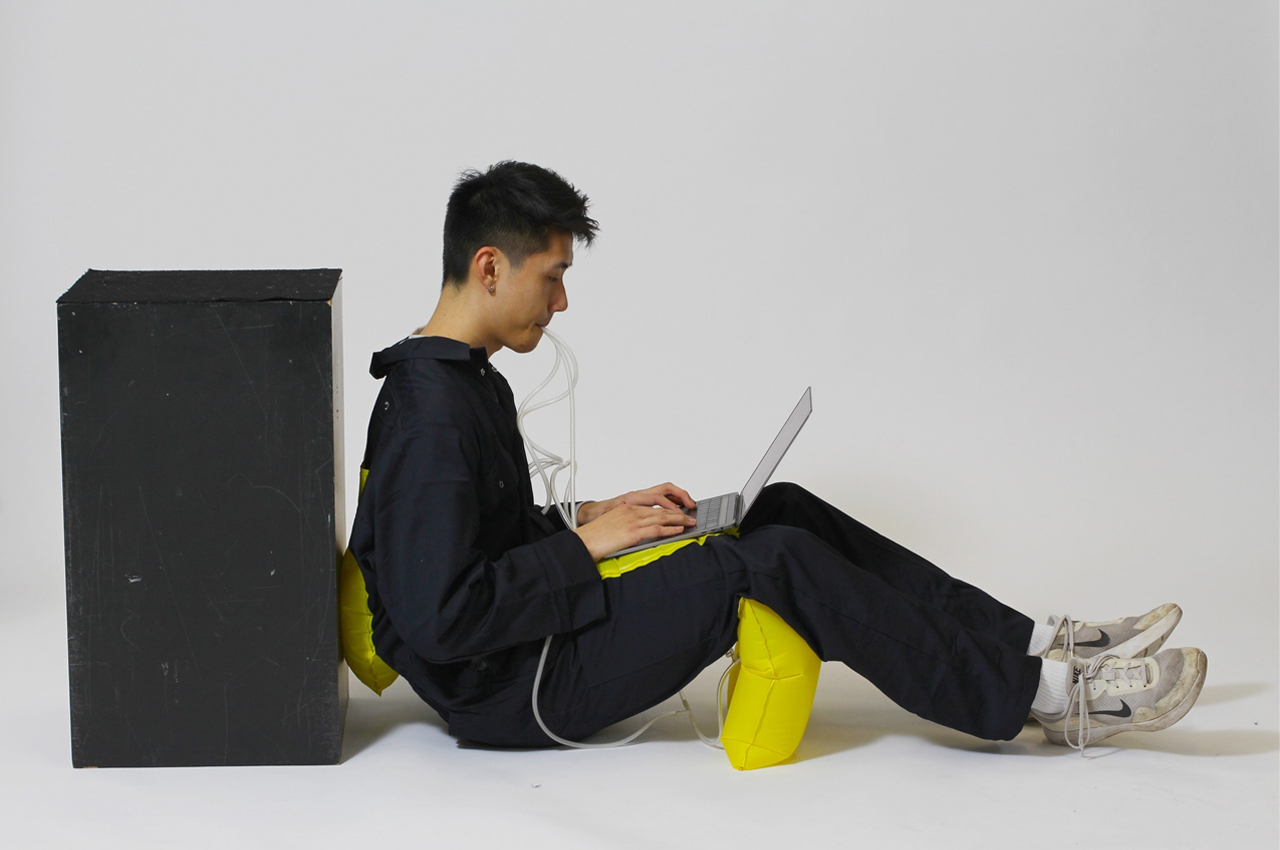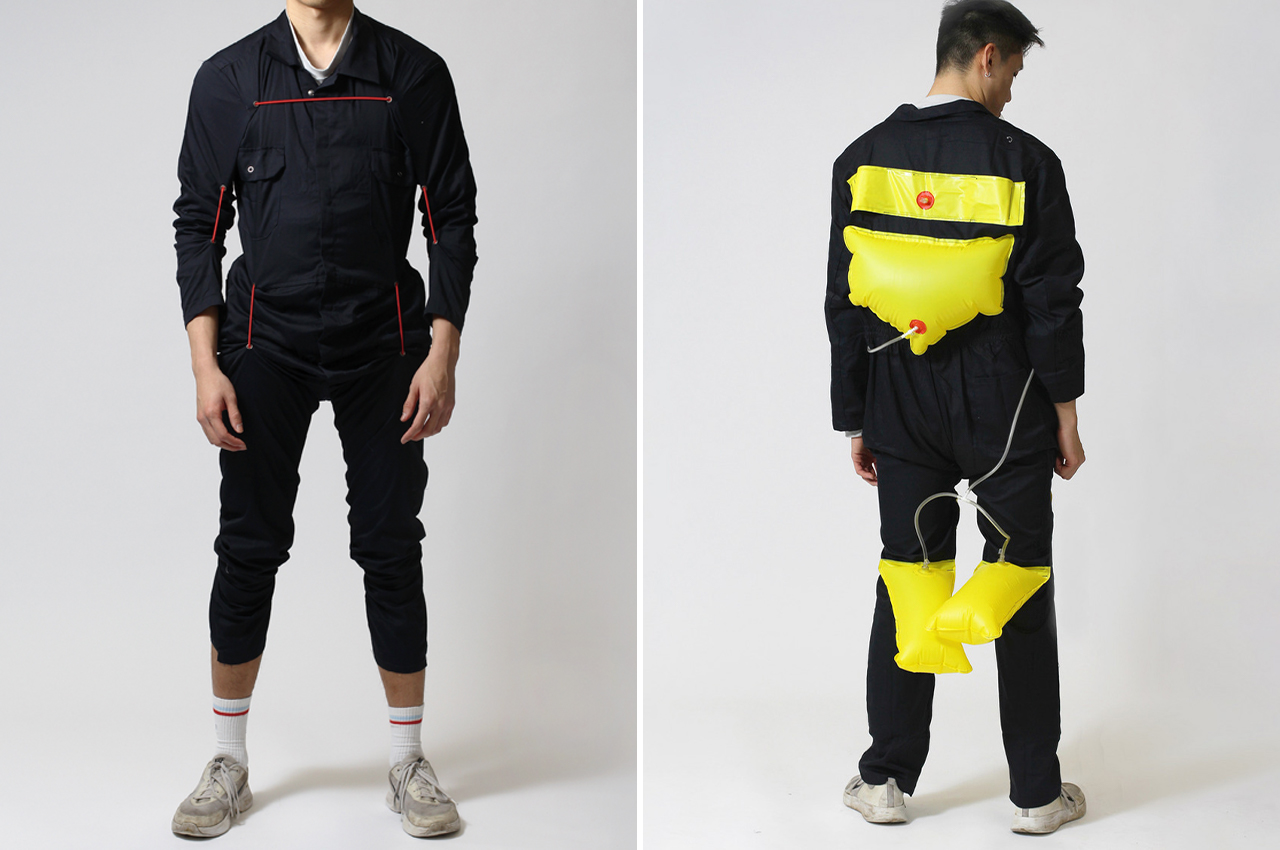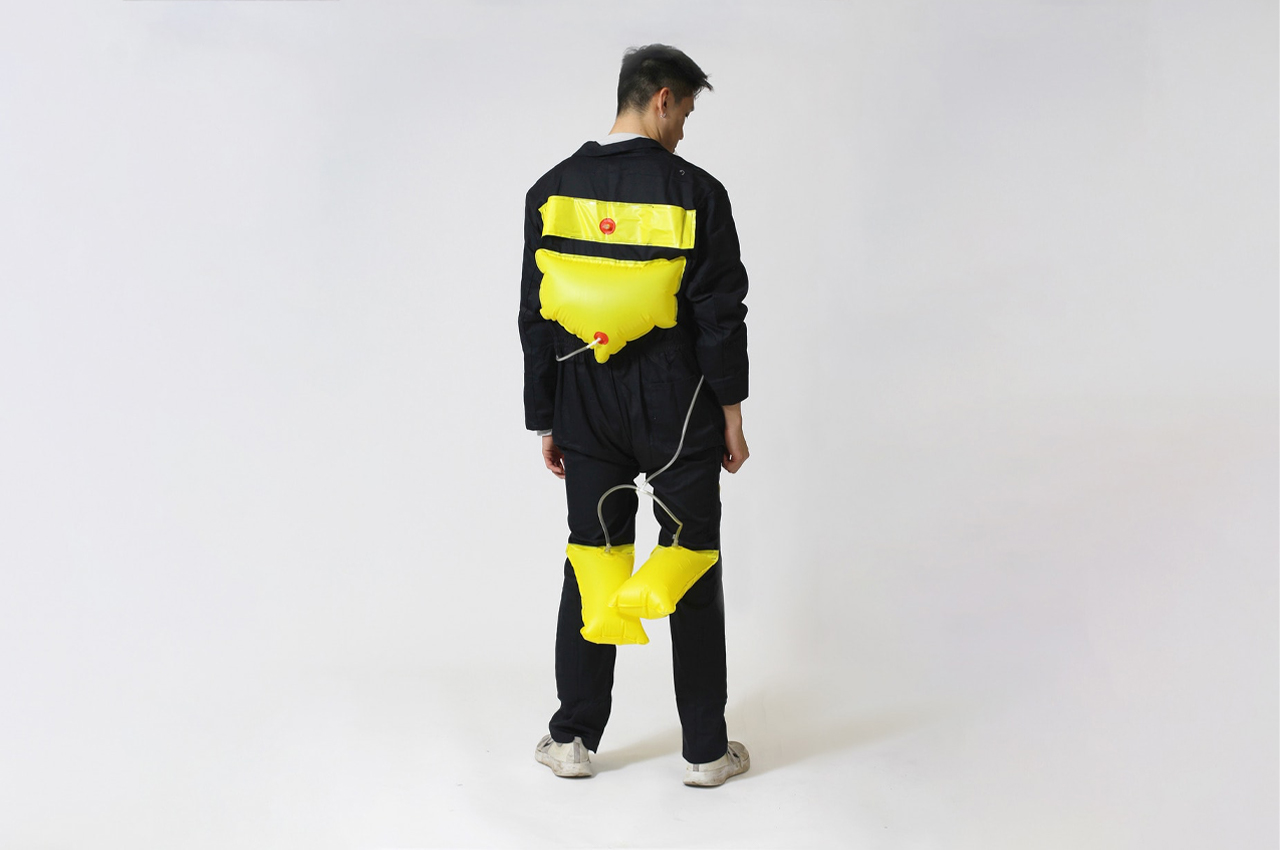
Wearable Workforce is a collection of two jumpsuits created to fit the modern needs of mobile work and WFH.
It feels like we’ve never witnessed such a revolutionary period in work culture than right now. The pandemic has sent us to work from home and the laptop has become the most valuable possession for mobile workers. With so many changes coming our way, designers are coming from all angles to revolutionize how we experience work.
Designer: Wei Lun Hung


Moving out of corporate office buildings, remote working means that we’re in charge of where we work and how we make ourselves comfortable. London-based product and object designer Wei Lun Hung tried his hand at changing the work game by experimenting with the clothes we wear to work. Amounting to a collection of two jumpsuits called Wearable Workforce, Wei Lun Hung aimed to revolutionize modern workwear.
Wearable Workforce was designed primarily for remote workers, or “itinerants,” as Wei Lun Hung calls the “radical pioneers of [today’s] new, highly mobile, fluid and energetic work culture.” Today’s remote workers find their offices in liminal spaces throughout the city—from the park to the cafe.
The second jumpsuit, Self-Manager, incorporates a pop-up style office into the very build of the jumpsuit. Outfitted with inflatable cushions, support is accessible wherever work goes. Integrated cushions can be found behind the knees, back, and on top of the lap for workers to inflate using their own breath. With support from the knees, workers will have a more stable base for their laptop to rest on their lap. Then, a backrest provides the support to recline anywhere.
The first jumpsuit, Commuter, uses bungee cords to optimize our posture. Threaded with an elastic cord, the jumpsuit slightly tugs the wearer’s posture into its optimal positioning for working from a laptop. Designing Wearable Workforce, was less about bringing comfort to workers and more about changing workwear to fit the ways our bodies naturally fall when working from a laptop, despite how unhealthy our postures might be.
There’s a fine line between just enough comfort and too much. At times, when we’re too comfortable, our productivity is inversely affected. But getting that seat recline just right usually means that our productivity at work will improve. When we’re working from home, no one’s watching but us, which means we’re less concerned with how our posture looks and more concerned with letting our bodies do what they want.
Noticing this difference between office work and WFH culture, Wei Lun Hung explains his first prototype, “Informed by [the] previous exploration on constraint body condition, the inflatable prototype goes to the opposite and looks at ways to support the body and enhance comfort. Diving deep into the context of working from home, the lack of a central force of surveillance marks interesting dynamics with comfort and productivity.”